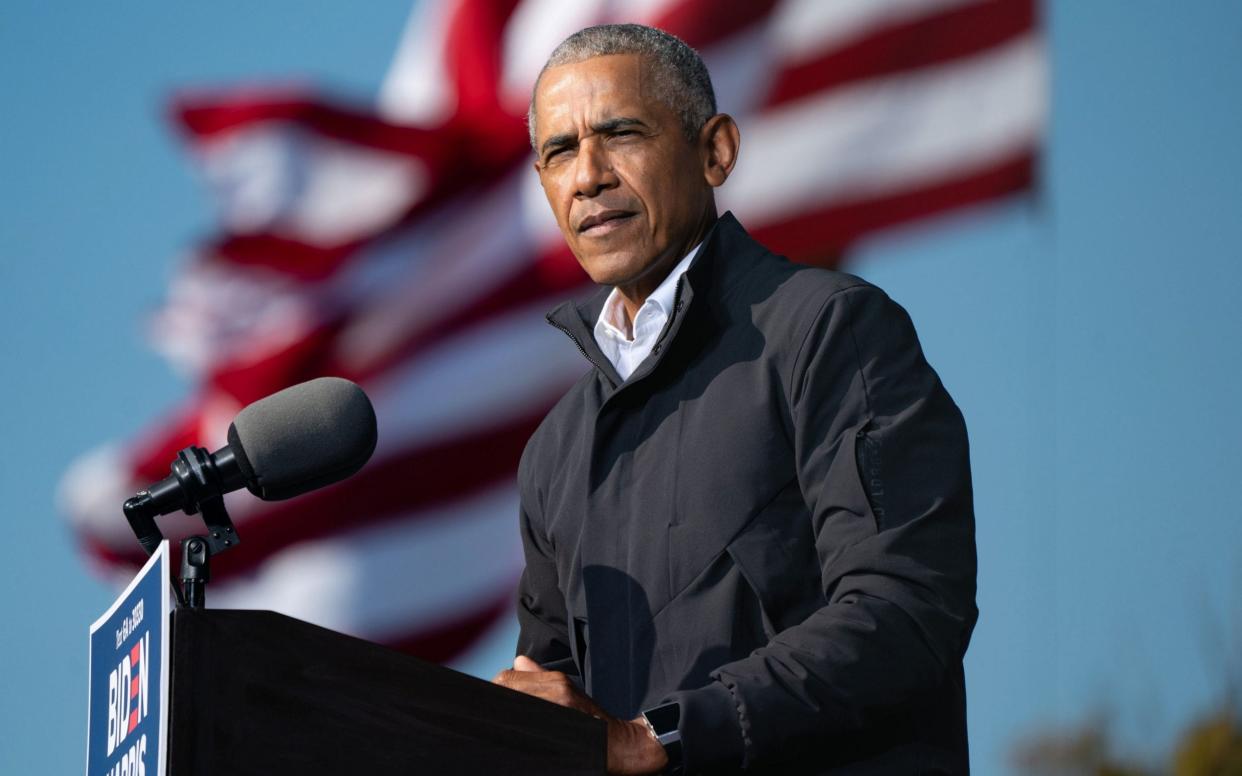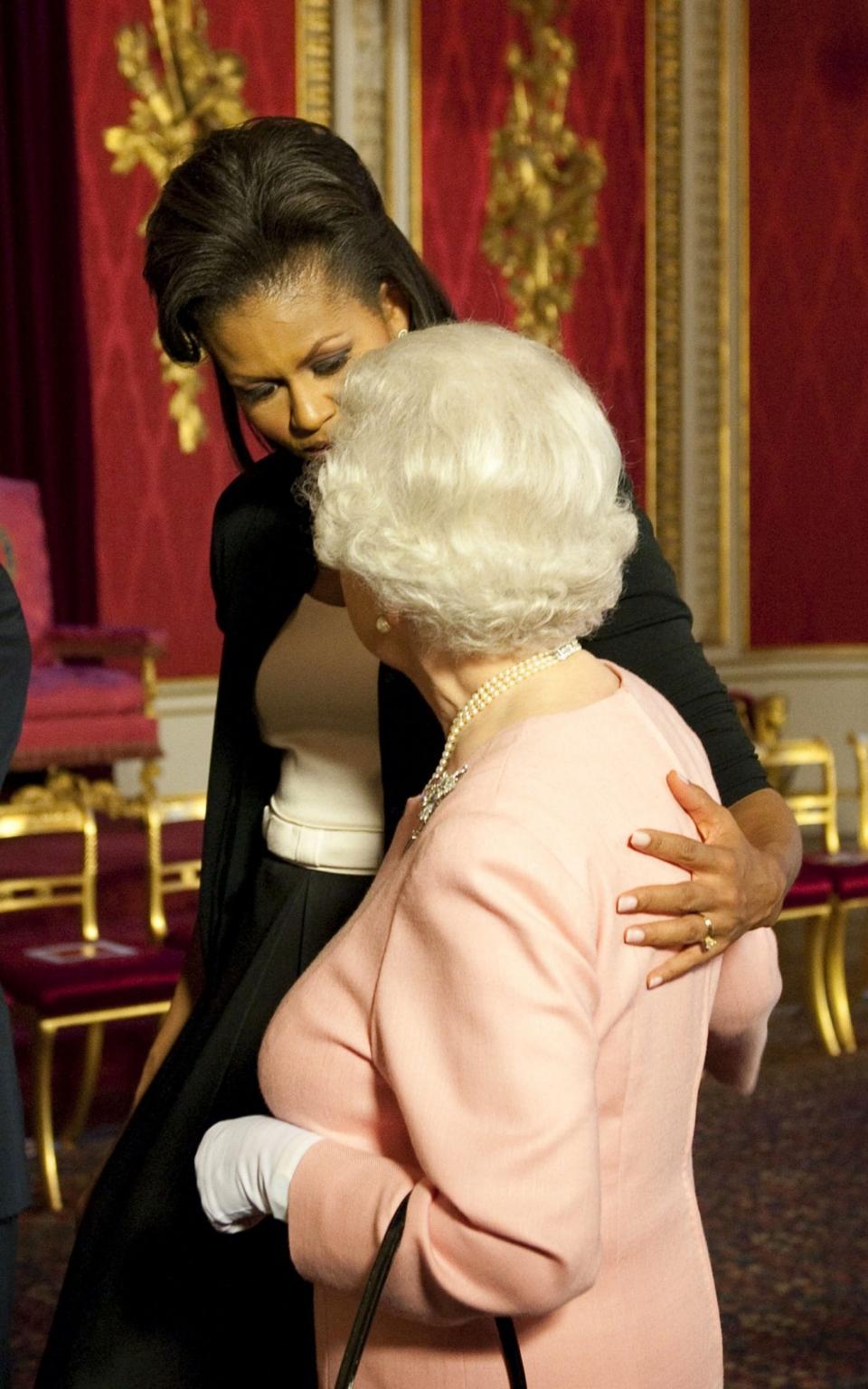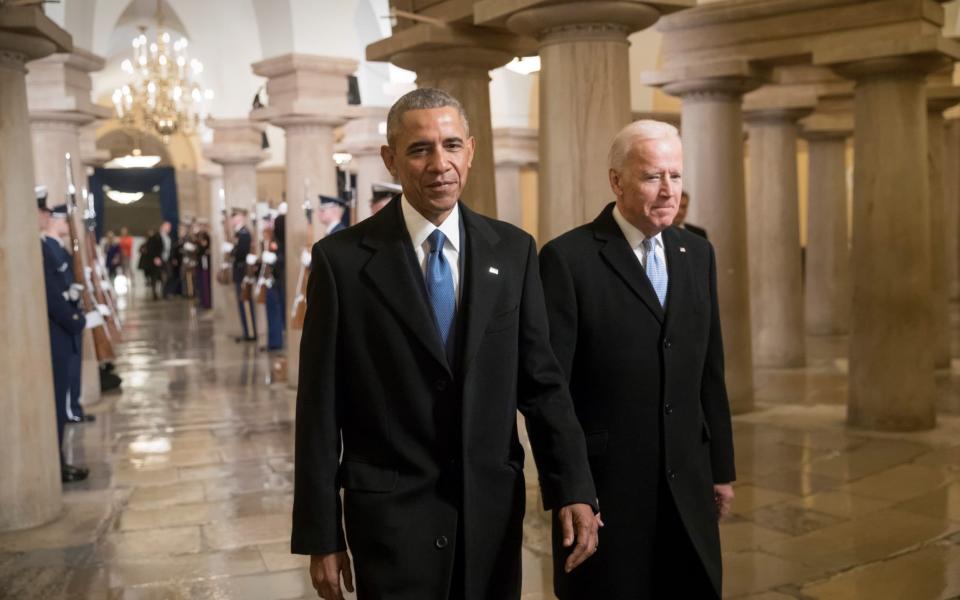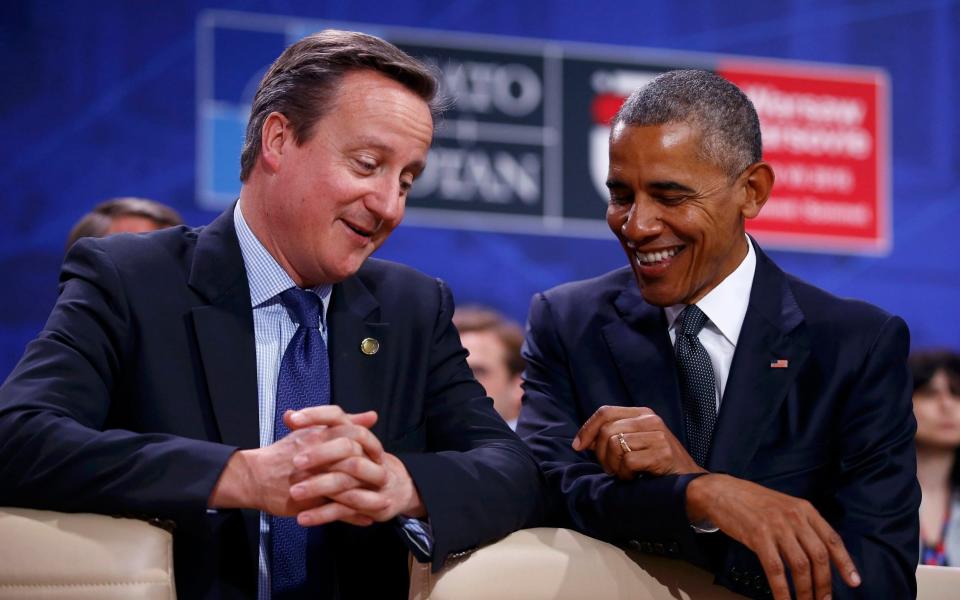Barack Obama dismisses royal protocol row over Michelle touching Queen's shoulder in new memoir

- Oops!Something went wrong.Please try again later.
- Oops!Something went wrong.Please try again later.
Barack Obama has waved away an old row about whether his wife Michelle broke royal protocol by placing a hand on the Queen’s shoulder, writing in his new memoirs that Her Majesty “didn’t seem to mind”.
The former US president discusses the incident, which happened when the Obamas visited Britain alongside other world leaders for a G20 summit in April 2009, in his book A Promised Land, which is published on Tuesday.
Mr Obama, who then had only been in the White House for three months, recalls how Michelle Obama, then the First Lady, caused “her own bit of controversy” at the reception in Buckingham Palace.
“She was photographed with her hand resting on Her Majesty's shoulder (see below) - an apparent breach of royalty-commoner protocol,” Mr Obama writes.
Swiftly he adds: “Although the Queen didn’t seem to mind, slipping her arm around Michelle in return.”

Mr Obama also describes how concerned his wife had been with what to wear for their audience with the Queen.
The former president says he joked: “You should wear one of those little hats and carry a little handbag.”
In the end Mrs Obama wore a cardigan over her dress, “sending Fleet Street into a horrified tizzy”, as Mr Obama recalls.
The former president remembers telling his wife afterwards: “You should have taken my suggestion and worn one of those little hats. And a little matching handbag!”
Mr Obama quotes her response too: “And I hope you enjoy sleeping on a couch when you get home. The White House has so many to choose from!”

The exchanges offer an insight into the conversations that happen when a world leader and their other half meet the Queen for the first time.
They also show the raised eyebrows that were adopted by the Obamas as the media policed royal protocols.
The story is one of a number linked to Britain that Mr Obama describes in his 768-page memoir, which covers his life up to mid-2011. A second volume, which will include his 2012 election and second term, is in the works.
Praise for Brown and criticism of Cameron's austerity
Throughout the book Mr Obama offers up colourful descriptions of world leaders, including the two UK prime ministers he worked with while in office: Gordon Brown and David Cameron.
Mr Brown is described as someone who “lacked the sparkly political gifts of his predecessor” Tony Blair, who was both Labour leader and prime minster before Mr Brown.
Mr Obama notes: “It seemed as if every media mention of Brown included the term ‘dour’.”
But Mr Obama also talks of Mr Brown’s political strengths. “He was thoughtful, responsible, and understood global finance,” Mr Obama writes, adding “I was fortunate to have him as a partner” during the fallout from the 2008/09 financial crisis.
Mr Obama says of Mr Cameron: “In his early forties, with a youthful appearance and a studied informality (at every international summit, the first thing he’d do was take off his jacket and loosen his tie), the Eton-educated Cameron possessed an impressive command of the issues, a facility with language, and the easy confidence of someone who’d never been pressed too hard by life.”

Mr Obama goes on, saying “I liked him personally, even when we butted heads” and described Mr Cameron over the six years both leaders were in post as “a willing partner on a host of international issues”.
Mr Obama names among those issues climate change, human rights and aid for developing countries. But he is critical of Mr Cameron’s initial approach towards the Libyan uprising that saw the fall of Muammar Gaddafi.
Mr Obama says Mr Cameron and Nicolas Sarkozy, then the French president, had made him frustrated by initially proposing a "half-assed" no-fly zone over Libya.
"I was irritated that Sarkozy and Cameron had jammed me on the issue, in part to solve their domestic political problems", Mr Obama writes.
The former president is also dismissive of Mr Cameron’s austerity agenda, saying that policies such as government service cuts and deficit reduction saw the British economy “fall deeper into a recession”.
The linkage between the two is likely to be contested by figures who served at the top of Mr Cameron's government.

